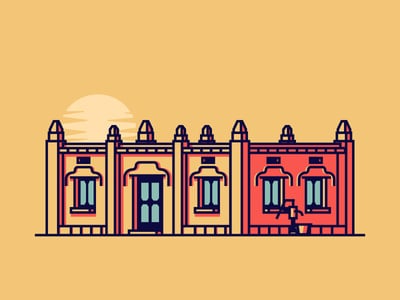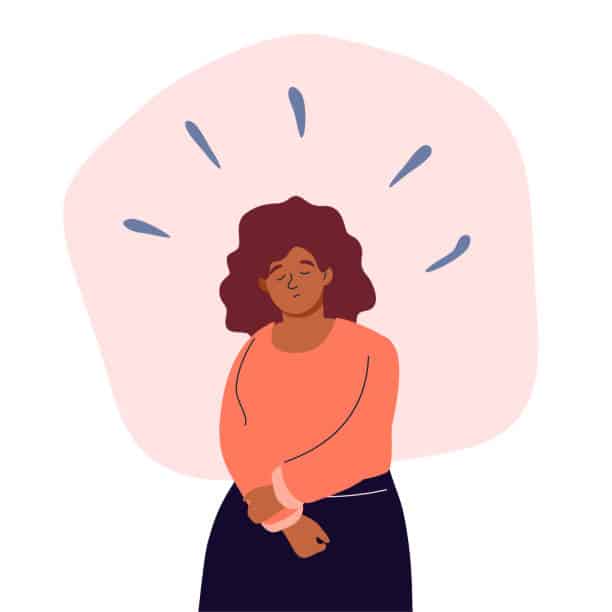In 2016, the number of people estimated to be suffering from mental health issues like depression and anxiety amounted to roughly 1.1 billion. Since then, numbers have likely continued to rise. Moreover, studies have also shown women especially on average are a) more likely to suffer from mental health issues, and b) less likely to talk about them. The taboo in Pakistan surrounding depression and anxiety disorders only serve to aggravate the individuals suffering even more. For the women who cannot seek out full time therapy, we’ve enlisted the help of a trained therapist. You sent us in your questions – here are the answers!

“I am half-Pakistani and half-Moroccan and as a mixed girl, the Pakistani community is so horrible to me. My Pakistani family doesn’t accept me at all and say I have ‘dirty’ blood. They call me gori, but I am not even white – I am Arab. I am 16 and feel like such an outsider in my own family/community. When I wear Pakistani clothes to family gatherings, they gather together and literally laugh and mock me to my face! It’s sad knowing I am not accepted by a culture whose food, music and everything else, I adore. I don’t know why I am not accepted. Is there anything I can do? I just feel so disheartened by this behaviour.”

Shahrukh’s Response:
Dear Anon,
I’m so sorry you’ve been experiencing such unkindness and mockery from a culture you’re not only living in, but are also a part of. That is completely unfair, and I hear you when you say you feel disheartened. Let’s see if there’s a way we can help you feel a little safer and more grounded within this community.
Recognising What You Can Control
When it comes to people and how they respond to you, Anon, one thing to ask yourself is: what can I do for myself? What can I control in this situation? Changing someone’s words, actions and beliefs are something that are beyond our realm of control. We often get caught in the idea that maybe they’ll change if we act differently, but chances are that they won’t. They might change in the future, but that’s up to them. At the end, the most you can do for yourself is express who you need to be in this community.
Your family referring to you as “dirty blood” will have more to do with their narrative than your own, trust me. I know it hurts to hear something like that. It’s incredibly painful, and it has absolutely nothing to do with you – it’s important to remember that. This could be the result of generations worth of social conditioning in terms of attitudes to any mixed-race Pakistanis. In fact, this idea goes well-beyond mixed races; there are so many sub-communities and religious sub-communities within the Pakistani community itself. Even in the case of marriages, there are some sub-communities that will only allow marriages within that community. While this might not be the case for every single Pakistani, this is something that I have experienced.
So, really, embracing diversity to its fullest is something that hasn’t really caught on as much as we would like it to in the Pakistani community as a whole.

Finding Your Place – Wherever It May Be
The Pakistani community, like any other, does have its faults. When it comes to cultural diversity and acceptance, there is a huge disparity between us and other countries. One of the things I have noticed, and this is my own personal observation: Pakistanis can get caught up in familiarity and find it difficult to connect to things or individuals that might be different, especially other cultures or origins. It’s not to say that you can’t find your place, but it might take a little time and a little exploration. With that all being said, the point that I want to emphasize is that you are not to blame for how they respond. You have every right to be exactly who you need to be, and explore this culture through your own lens. Pakistan may seem small, and to a great extent it is, but there are different types of groups scattered throughout the community. It’s just a matter of finding them; whether it’s through school, social media, or perhaps even finding someone within your family that you might be able to connect with.
You Do You!
I want to emphasise one fact, Anon: there is nothing wrong with you, nor is it your fault that those around you make certain comments about you and how you present yourself – it’s not okay. At this point, I would recommend finding your own identity within this community; maybe knowing who you are and knowing what you love about this community will be more than enough. Perhaps shifting focus away from those who comment about you, and looking more towards those who are accepting of exactly who you are because you deserve that. Embrace the identity that you have, because no one, and I mean no one has the right or the power to take that away from you.

The above article is written by Shahrukh Shahbaz Malik who is trained in humanistic integrative counselling at CPDD in the UK and currently has her own private practice in Karachi. The views expressed in this article are those of one expert. They do not necessarily represent the views of Mashion, nor do they represent the complete picture of the topic at hand. This article is for informational purposes only and is not a substitute for medical diagnosis or treatment.









What do you think?
You must be logged in to post a comment.